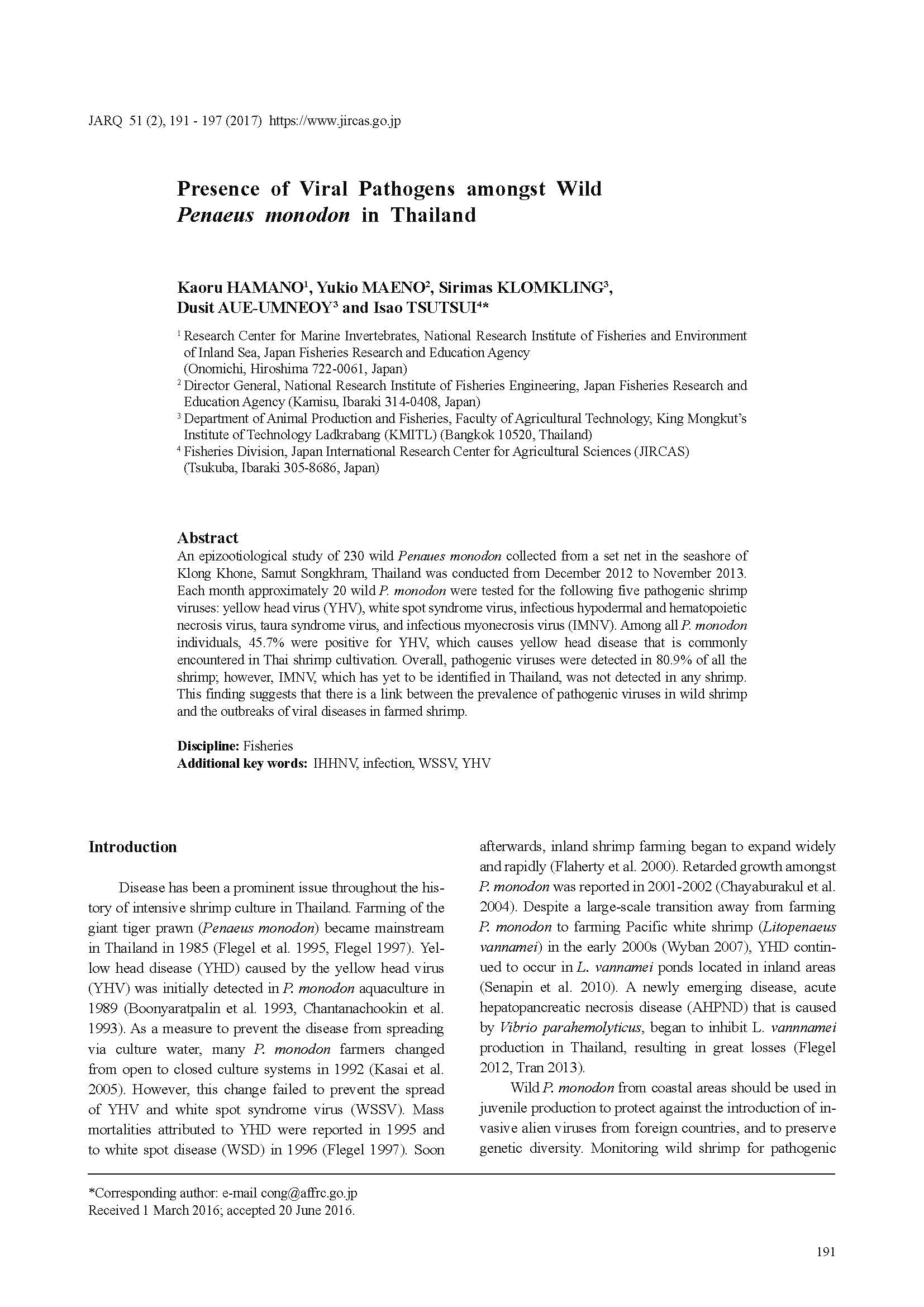An epizootiological study of 230 wild Penaues monodon collected from a set net in the seashore of Klong Khone, Samut Songkhram, Thailand was conducted from December 2012 to November 2013. Each month approximately 20 wild P. monodon were tested for the following five pathogenic shrimp viruses: yellow head virus (YHV), white spot syndrome virus, infectious hypodermal and hematopoietic necrosis virus, taura syndrome virus, and infectious myonecrosis virus (IMNV). Among all P. monodon individuals, 45.7% were positive for YHV, which causes yellow head disease that is commonly encountered in Thai shrimp cultivation. Overall, pathogenic viruses were detected in 80.9% of all the shrimp; however, IMNV, which has yet to be identified in Thailand, was not detected in any shrimp. This finding suggests that there is a link between the prevalence of pathogenic viruses in wild shrimp and the outbreaks of viral diseases in farmed shrimp.

